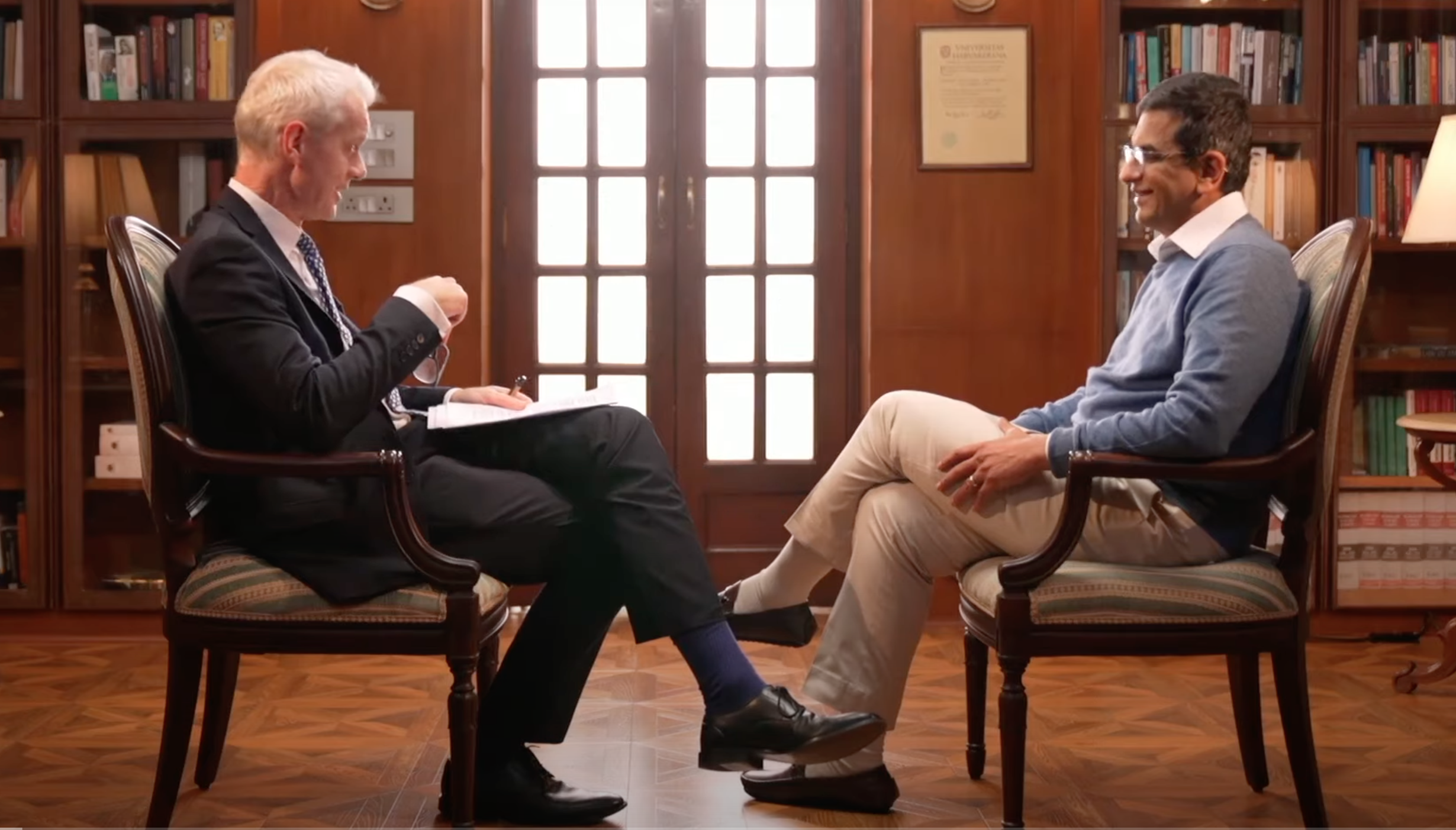Former CJI DY Chandrachud defends the Article 370 verdict, questions whether 75 years was too short for abrogation, and addresses claims of judicial bias in a BBC HARDtalk interview.

Former Chief Justice of India (CJI) DY Chandrachud appeared on BBC's HARDtalk with journalist Stephen Sackur, where he addressed some of the most controversial judgments delivered during his tenure. In a wide-ranging and in-depth discussion, the former CJI defended the Supreme Court’s unanimous verdict on Article 370, which upheld the President’s authority to revoke Jammu and Kashmir’s special status in August 2019.
Chandrachud explained that Article 370 was always meant to be a “transitional provision” and questioned whether 75 years was too short a period for its abrogation. He also discussed other sensitive legal issues, including:
- The restoration of democracy in Jammu and Kashmir.
- Allegations of political influence on the judiciary.
- The role of the judiciary in safeguarding individual liberties.
- Claims of elitism and dynastic dominance in the Indian judiciary.
- Prime Minister Narendra Modi’s visit to his residence and its implications.
Key Highlights of the Interview
Defending the Supreme Court’s Verdict on Article 370
- On December 13, 2023, a Constitution Bench of the Supreme Court, led by CJI DY Chandrachud, unanimously upheld the President’s power to revoke Article 370.
- The verdict led to Jammu and Kashmir’s reorganization into two Union Territories and the removal of its special privileges.
Chandrachud’s Explanation on Article 370
- When asked about legal scholars’ disappointment with the ruling, Chandrachud maintained that judges should neither defend nor critique their own judgments.
- He stated:
“Since I was the author of one of the judgments in the case, a judge by their very nature of profession has some restraints on either defending or critiquing their judgments.”
Was 75 Years Too Short a Time to Abrogate Article 370?
- The former CJI emphasized that Article 370 was a temporary provision meant to merge with the Constitution over time.
- He posed the question:
“Now, is 75 plus years too less for abrogating a transitional provision?” - He argued that if the elected government decides to revoke a provision that was originally temporary, the decision is constitutionally valid.
Restoration of Democracy in Jammu & Kashmir
- Chandrachud highlighted that the Supreme Court mandated the restoration of democracy in Jammu and Kashmir.
- He said:
“The democratic process in Jammu and Kashmir must be restored, effectively setting a timeline for that.” - He further added:
“There has been a peaceful transfer of power to a government which is a political party that is not of the dispensation as the Union government in Delhi. This is a clear indicator that democracy has succeeded in Jammu and Kashmir.”
Judiciary’s Role in Defending Democracy and Personal Liberties
Rejecting Claims of Political Influence
- Chandrachud dismissed accusations that the judiciary was influenced by political pressures, highlighting its record of granting bail to opposition leaders and activists.
- He emphasized:
“If you look at the number of people who have been granted bail... last year, 21,000 bail applications were filed in the Supreme Court, and it disposed of 21,300 applications.”
Judiciary vs. Government Role
- He maintained that the judiciary does not serve as an opposition force but as a guardian of constitutional values.
- He clarified:
“The role of the judiciary in a democratic society is not the role of the Opposition in Parliament. We are here to decide cases and act in accordance with the rule of law.”
Does the Indian Judiciary Have a Dynasty Problem?
Responding to Claims of Elite and Upper-Caste Dominance
- Chandrachud rejected claims that the judiciary is dominated by elite, upper-caste men.
- He pointed to an increasing number of women entering the judiciary, stating:
“Over 50 percent of new recruits in district judiciary are women. In some states, this number goes up to 60 or 70 percent.” - He explained that the higher judiciary today reflects the legal profession’s composition from a decade ago, meaning gradual change is underway.
PM Modi’s Visit to His Home: A Controversy?
- Sackur questioned whether Prime Minister Modi’s visit to Chandrachud’s home on Ganesh Chaturthi signaled judicial favoritism.
- Chandrachud dismissed the concerns, saying:
“Let’s not make too much out of the elementary courtesies of the constitutional office.” - He stressed that such visits have no influence on judicial decisions and cited judgments against the government, including the electoral bonds case.
Ram Temple Verdict and Faith in Judiciary
- Chandrachud denied viral claims that he sought divine intervention for the Ayodhya Ram Temple verdict.
- He firmly stated:
“If you look at social media and try and derive what was said by a judge, you will get the wrong answer.” - He explained that while he is a person of faith, his judicial decisions remain impartial.
- He added:
“What my faith teaches me is the universality of religion and irrespective of who comes to my court, you dispense equal and even-handed justice.”
Source: BBC News India





